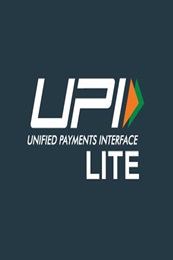Understanding Universal Banking Licences in India
April 15, 2025

A Universal Banking Licence permits a financial institution to offer a wide array of banking services, including commercial and investment banking, under a single umbrella. This model aims to provide comprehensive financial solutions to customers, enhancing convenience and operational efficiency.
The Reserve Bank of India's 'On Tap' Licensing Guidelines
In August 2016, the Reserve Bank of India (RBI) introduced the 'on tap' licensing policy for universal banks in the private sector. This policy allows eligible entities to apply for a banking licence at any time, promoting a more dynamic and competitive banking environment. Key aspects of these guidelines include:
1. Eligibility Criteria
- Individuals/Professionals: Resident individuals with at least 10 years of experience in banking and finance at a senior level are eligible to promote universal banks.
- Entities/Groups: Private sector entities owned and controlled by residents, with a successful track record of at least 10 years, are eligible. However, large industrial houses are excluded but may hold up to a 10% stake in such banks.
- Non-Banking Financial Companies (NBFCs): NBFCs controlled by residents and with a successful track record of at least 10 years can apply, provided they meet certain criteria.
- Conversion of Small Finance Banks: According to RBI norms, to be eligible for conversion into a universal bank, these banks must:
- Have a minimum net worth of ₹1,000 crore.
- Hold scheduled status.
- Have a satisfactory track record of at least five years.
- Maintain a gross non-performing asset (NPA) ratio of 3% or less and a net NPA ratio of 1% or less over the past two financial years.
- Be listed on stock exchanges.
2. Corporate Structure
- The requirement to establish a Non-Operative Financial Holding Company (NOFHC) is not mandatory for individual promoters or standalone entities without other group entities.
- For promoters with other group entities, setting up the bank through an NOFHC is mandatory, with at least 51% of the total paid-up equity capital of the NOFHC owned by the promoter/promoter group.
3. Capital Requirements
- The initial minimum paid-up voting equity capital for a bank is set at Rs 5 billion.
- Promoters must hold a minimum of 40% of the paid-up voting equity capital, locked in for five years from the commencement of business.
- This shareholding should be reduced to 15% within 15 years.
4. Foreign Shareholding
- Foreign shareholding is permitted as per the existing Foreign Direct Investment (FDI) policy, with an aggregate limit of 74%, subject to the minimum promoter shareholding requirements.
5. Corporate Governance
- The bank's board should have a majority of independent directors.
- The bank must comply with the Banking Regulations Act, 1949, and existing prudential norms applicable to scheduled commercial banks.
6. Financial Inclusion
- Applicants must submit a viable business plan addressing how the bank proposes to achieve financial inclusion.
- At least 25% of the bank's branches should be located in unbanked rural centers.
7. Listing Requirements
- The bank is required to list its shares on stock exchanges within six years of commencing business.
These guidelines aim to foster a robust and inclusive banking sector in India by encouraging the establishment of new universal banks with sound governance and a focus on financial inclusion.
Recent Developments
In February 2025, Ujjivan Small Finance Bank applied for Universal Licence to shift from a small finance bank to a universal bank. The move would allow Ujjivan to introduce more products.
Final Thoughts
The RBI's 'on tap' licensing policy represents a significant step toward enhancing the dynamism and inclusivity of India's banking sector. By setting clear eligibility criteria and emphasizing financial inclusion, the RBI aims to encourage the establishment of universal banks that can cater to diverse customer needs while maintaining financial stability.
FAQs
1. What is a Universal Banking Licence?
A Universal Banking Licence allows a financial institution to offer a comprehensive range of services, including both commercial and investment banking, under one roof.
2. Who is eligible to apply for a Universal Banking Licence in India?
Eligible applicants include resident individuals with at least 10 years of senior-level experience in banking and finance, private sector entities owned and controlled by residents with a successful track record of at least 10 years, and certain NBFCs controlled by residents.
3. Are large industrial houses allowed to promote universal banks?
No, large industrial houses are excluded from promoting universal banks but are permitted to hold up to a 10% stake in such banks.
4. What is the minimum capital requirement for setting up a universal bank?
The initial minimum paid-up voting equity capital is Rs 5 billion, and the bank must maintain a minimum net worth of Rs 5 billion at all times.
5. Is setting up a Non-Operative Financial Holding Company (NOFHC) mandatory?
The NOFHC structure is not mandatory for individual promoters or standalone entities without other group entities. However, it is required for promoters with other group entities.
6. What are the foreign shareholding limits in universal banks?
Foreign shareholding is allowed up to 74% as per the existing FDI policy, subject to the minimum promoter shareholding requirements.
7. What corporate governance norms must universal banks adhere to?
Universal banks must comply with the Banking Regulations Act, 1949, existing prudential norms, and ensure that their board comprises a majority of independent directors.
8. How do universal banks contribute to financial inclusion?
Universal banks are required to open at least 25% of their branches in unbanked rural centers and must present a viable business plan detailing their approach to achieving financial inclusion.
9. What is the timeline for listing a universal bank's shares on stock exchanges?
A universal bank must list its shares within six years of commencing business.
10. Can small finance banks convert into universal banks?
Yes, listed small finance banks with a minimum net worth of Rs 1,000 crore, a satisfactory track record of at least five years, and compliant NPA ratios (3% gross NPA and 1% net NPA) over the past two financial years are eligible for conversion.
Latest Blogs

Telangana Housing Board & KPHB Colony: A Guide to Affordable Urban Housing in Hyderabad
March 14, 2025
As Telangana continues its rapid urbanisation journey, two key housing entities—Telangana Housing Board (THB) and Kukatpally Housing Board Colony (KPHB)—have played critical roles in shaping the state's real estate ecosystem.

Does Checking CIBIL Score Frequently Lower Your Credit Points?
April 07, 2025
Imagine you're planning to apply for a home loan, a credit card, or even a car loan. Naturally, you want to ensure your CIBIL score is in good shape before proceeding.

Explained: Can NRIs Buy an Agricultural Land in India?
April 03, 2025
Real estate investment is often a top priority for Non-Resident Indians (NRIs) looking to retain strong financial ties to India.

How to Improve Your CIBIL Score from 600 to 750: A Step-by-Step Guide
April 02, 2025
Your CIBIL score is like your financial reputation—banks check it before approving loans or credit cards. If your score is hovering around 600, you might face difficulties in securing credit or may get loans with higher interest rates.

What Happens When You Leave Your Savings Account Unused?
April 01, 2025
Imagine waking up one day to find that your hard-earned money is locked away and inaccessible. Sounds stressful, right? This is precisely what happens when you leave your Savings Account inactive for too long.





